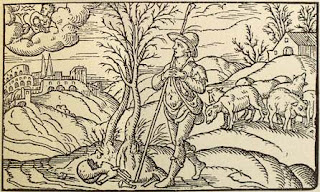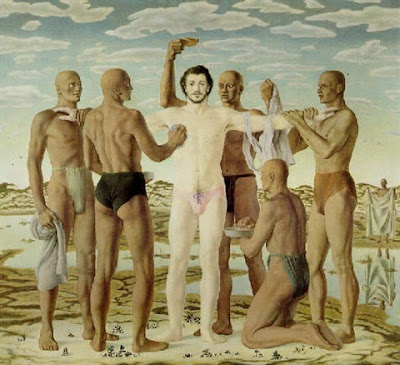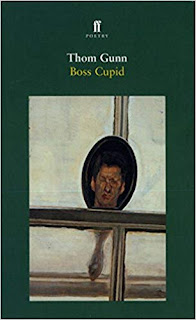The Experiment of the Tropics, Lawrence Lacambra Ypil.
Lawrence Lacambra Ypil is a writer from Cebu, a place name that translates as "trade". This new volume of poetry shows him to be an enterprising poet who is devoted to words and interchanging meanings. His first volume, The Highest Hiding Place (2009), was awarded the Madrigal Gonzalez Best First Book Award (2011). His second book of poetry, The Experiment of the Tropics (2019), has
achieved the inaugural Gaudy Boy Poetry Book Prize. Recently, he has also gained the Ani ng Dangal award for contributions to art and culture. Not surprisingly, these three awards identify Ypil as a writer whose work originates in Asia. The Experiment of the Tropics takes the
Philippines as its framework and reaches out intellectually and lyrically:
Longing is a head turned away towards a
century.
Singing needs a somewhere else across an
ocean, beyond a mountain,
Meanwhile, a lark sitting on a bough sings
over and over until
we sleep.
(How Does Love Begin).
The first poem remembers the building of a dam in
Bolocboloc. Ypil, however, commemorates a group of three women and one man as
they stand and marvel (almost a transformation of Apollo and the three Graces).
The man holds out his hands in an erotic and robust gesture as water spills
from a protruding pipe. It is “magic”.
Technological advancement gives way to wonder. This is a fitting start to The Experiment of the Tropics. The
Tropics, the turning points upon Earth, are connected etymologically to tropes—
figurative expressions in language. And Ypil’s second volume reclaims the
forgotten through poetical motifs: magic, imagination, movement, journeys,
stasis, deportment, gesture, pose:
…
If you can’t walk straight, dear sir,
at
least sit straight [.]
(I
Could Say).
The poems in The
Experiment of the Tropics ask pertinent questions about colonialism and identity:
this is a volume with global appeal and timely relevance. The colonial agenda
has always liked to trumpet its success. The Louisiana Purchase Exhibition (1904)
exhibited the progression of nations whilst portraying Filipinos as primitives.
Early photographs included in this volume portray the Philippines under USA
domination and correct the term “primitive”. The “experiment” in Ypil’s title cuts many
ways: it refers to the experiments practised by colonisers upon the colonised
and intimates the investigative nature of his volume.
In an
influential essay on gay poetry, in Orpheus
in the Bronx, Reginald Shepherd raised key questions about identity
politics. Where a writer pursued what was already known about the self,
discoveries, he believed, would always be rhetorical and confined. When a
writer searched for the unknown and the experimental, then poetry began. As
rhetoric closes down images of the self, so poetry opens up ways of viewing the
self. The triumph of Ypil’s volume is that it constantly opens up, unfurls, and
in doing so he draws away from identity politics into a poetry that portrays
the complexity of who we are...as human beings...as citizens. The city, the polis, is a changing entity moving
in many directions and with many perspectives— just like the self. Images begin,
develop, and sometimes over-expose, disappear in the flux between history and
the present.
The Experiment of the Tropics includes some telling historical photographs. And like Roland Barthes, Ypil has a wonderful eye
for the punctum, the personal that
“punctures” and shocks, which affirms through its emotional connection:
…
In the way the lone bud extended forlornly
Towards
the ear of the man in the picture
as
if was the hand of his lover reaching
from
across the bed to part his hair— [.]
(The
Hankie in the Breast Pocket).
Sexual
identity is a significant strand in this volume and one that harmonises with
the whole. Ypil has a marvellous sense of orality, the mouth and its sexual
energy, and how words become music on the page. His poetry is acutely phrased
and as carefully notated on the page as that of Robert Duncan or Cyril Wong. To
read The Experiment of the Tropics is
to enter into an experience that absorbs and intrigues.
This is a complete volume of poetry: finely type-set and proof-read, richly illustrated with compelling black and white photographs, and presented in a well-designed cover that suggests both an archipelago and the splintering of vision found within the poems. Poet and Publisher have created something exceptional in The Experiment of the Tropics.




Comments